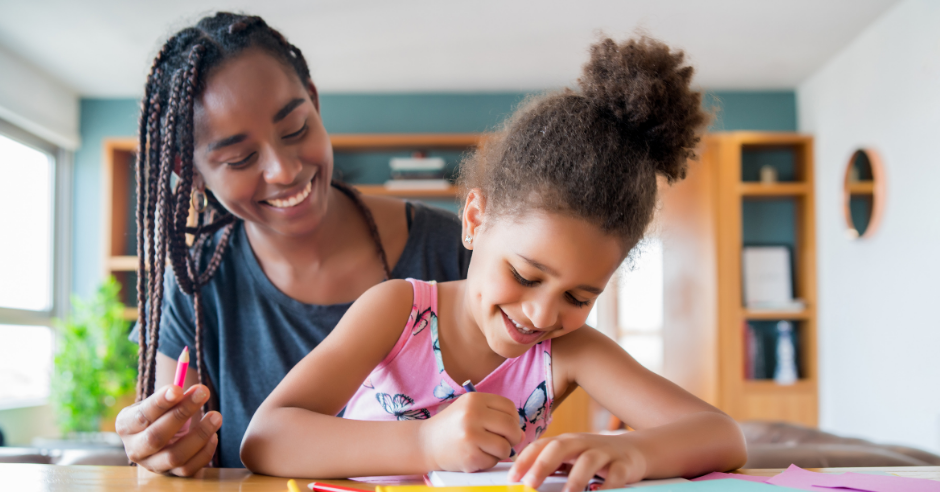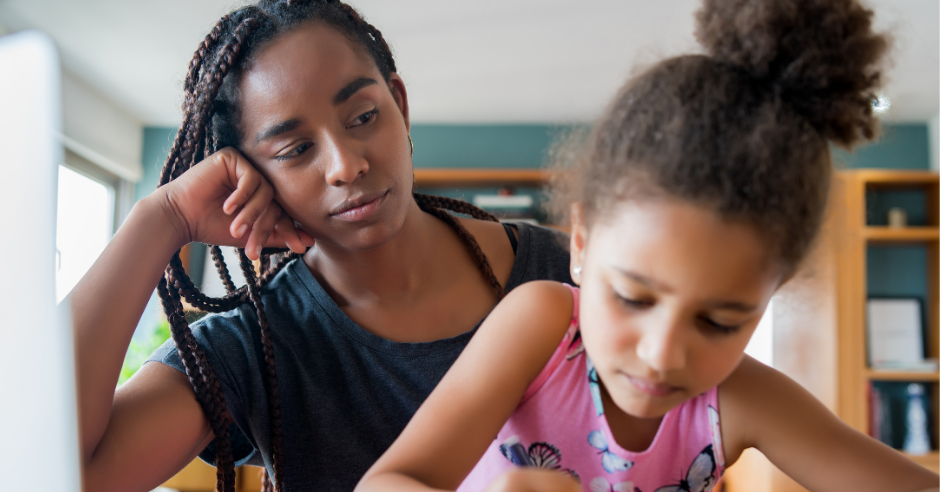Talking about school with your child: 20 fun questions!

How do you talk to your child about school? The question “How was school?” often does not work. Your child gives a vague answer such as ‘good’, ‘fine’ or ‘I don’t know. Recognizable? In this article, you can read how your child is going to tell something. And what you can ask your child so that you can find out more. You will read when it is best to ask questions, which types of questions work best and extra tips that will make your child talk. Includes 20 fun questions to ask!
Table of Content
Talk to your child about school
The most important thing when talking to your child is to listen. This may sound logical, but listening carefully is an art. Be open to what your child wants to share. Make sure you listen carefully and without judgment. So put your phone away and keep your own opinion in front of you. Children are very sensitive to your opinion or judgment. If you give your reaction right away, your child will be less likely to share next time. In addition, your child does not want to see you sad or angry, so he or she will try to prevent this.
You only get a good conversation when your child feels at ease. So show your child that you think his opinion is important. You do this with an open and involved attitude; Sit at your child’s eye level, make eye contact, and radiate warmth and interest.
It is important not to fill in the thoughts and feelings of your child. Don’t ask leading questions like, “ You don’t like that, do you? ‘Or’ Are you sure you really don’t mind? ‘. Children are very sensitive to this. Your child will get the feeling that you want to hear that he does not like or dislike something. There is a good chance that your child will go along with this, regardless of what he or she feels.
When do you talk to your child about school?
When your child comes out of school, he is often tired or already busy with the following things, such as playing with a boyfriend or girlfriend. Then don’t overload your child with questions about how it was at school. Most children are not at all waiting for an extensive conversation about the day. It is better to ask your questions in a quiet time. For example when you are at home and have tea together, or at the end of the day. For example, discuss the day before going to sleep.
Talking to your child is easiest if your child is open to it. Children often choose when they want to talk. You can recognize these moments by small conversation openings that your child provides. Your child then lets go of something small about school. For example about something that happened at school or about how he feels. If you recognize these conversation openings and respond immediately, your child will tell more.
The right words at the right time.!
Asking open or closed questions
The question “How was school?” is an open question. In principle, open-ended questions are very good, because they give the other person the space to talk about what he finds important. But…. open questions are sometimes very difficult to answer for children. An open question is a question that, for example, starts with how, who, what, where, or why, and to which many answers are possible. The question ” How was school?” is often too open and therefore too complicated for children.
The opposite of an open question is a closed question. A question to which your child only has to answer with ‘yes’ or ‘no’. These questions are much easier for children, but even then you don’t get much information. ” Was it fun at school?” -> ‘Yes’ . Then you don’t know anything yet …
But what does work? Ask an open question in a specific direction. With this, you help your child to answer and at the same time give your child the space to tell his own story. For young children up to 6 years old it is good to alternate between closed and open questions. Below you will find 12 examples of fun questions to ask your child.
Me message
Especially if children have difficulty expressing their feelings, we as adults will fill in for them. It helps to talk from an I message, such as ‘I can imagine that….’ , ‘I don’t think you look that happy….’. With a comment from the I-message, you show that it is your opinion and that another opinion is possible. The conversation is then more equal.
A list of tips for talking about school
- Sit at the eye level of your child
- Pay attention to conversation openings from your child and respond to them immediately
- Listen carefully to your child
- Don’t judge and keep your opinion to yourself
- Keep the conversation short. Especially with young children, they still have a short tension.
- Ask specific open-ended questions
- Go with your child into the classroom and ask your child questions there
- Do not overload your child with questions and alternate questions
- Tell yourself about how your day was; share what you have done and what you have learned. Your child learns from the example you set.

20 fun questions to ask your child
If you want to talk about school, ask your child fun, surprising questions. Do not ask the same question every day, but alternate. Below are 20 fun questions to ask when your child leaves school:
- What do you hope tomorrow will be the same as today?
- What do you hope tomorrow will be better than today?
- Who have you played with? And what did you do?
- What was the nicest / stupidest thing you have experienced today?
- Who did you help today? And who helped you?
- If you could do it again today, what would you do differently?
- What was funny at school that made you laugh?
- What is the coolest or nicest place in school?
- If you could be the teacher tomorrow, what would you do?
- What did you tell the circle today? Or what would you have liked to say in the circle?
- Who would you like to play with if you can choose between all the kids you’ve never played with?
- What would you like to do or learn more often at school?
- Are you in a nice place in the classroom or would you like to swap with someone? If so, what could be nicer?
- Suppose you were allowed to take something home from school, what would you choose?
- Did someone scare / happy/angry/sad you today? What happened?
- Who in class could you be nicer to? How would you do that?
- What nice things would the teacher say about you when I talk to the teacher?
- Which school rule do you find difficult?
- What did you do in school that you can be proud of?
- If you had a magic wand and you got to make a wish for school, what would you wish for?
Talk to your child to Know more about your child in a different way
Young children in particular are not yet able to put into words what they feel and think. So if you want to know how your child is doing, it is more important to look at his behavior. Instead of talking, observing often provides more information in children. A child shows how he is doing with his behavior. Is your child very angry, frustrated, or very quiet and withdrawn? Then that can be a signal that things are not going well at school. But if your child is happy, sleeps well, and skips to school, that is a sign that your child is feeling good at school. If you have any doubts or concerns, share these concerns with the teacher and ask if he/she recognizes the behavior and shares your concerns.
Talking to your child strengthens your bond. Your child feels heard and understood. Do you want to know more about talking about feelings with your child? Then view the 10 tips in the article Talking about feelings with your child. With these 10 tips, you will teach your child to talk about feelings and ensure that your child comes to you when necessary.
Read Also: Vitamin D And COVID-19: An Update









